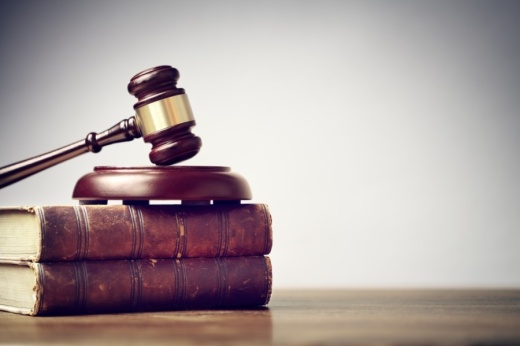At a Jan. 15 emergency court hearing, U.S. District Judge Lee Rosenthal called on county officials to try to reduce the inmate population with an effort that centers largely on bail reduction hearings but could also include pretrial release for a small batch of nonviolent cases and the release of inmates who are being held at the jail due to the closure of halfway houses and other treatment facilities during the pandemic.
Initial efforts will focus on 1,151 inmates who are being held on bond for $10,000 or less and would be the primary targets for bail reduction. Another 364 inmates who have been charged with nonviolent offenses could potentially be released on personal recognizance bonds.
The emergency hearing was part of an ongoing court case Russell v. Harris County, which relates to the county's felony bail bond practices. Rosenthal said she did not want to "convert pretrial detention into a death sentence."
"We do not want to infect our civilian guards, the people who clean and feed and take care of the inmates and then go home to their families and put them at risk," she said. "The risk of doing that [is] heightened in this spike with the specter of more contagious variants. ... Nobody wants to turn the jail into a killing field.”
The list of 1,151 inmates was identified by officials in the sheriff's office and is slated to be shared with other stakeholders by the end of the day. After that, the district attorney's office will go through the list, determine reduced bail amounts and notify of any objections, a process Rosenthal asked to be completed by the end of Jan. 20.
If all parties agree on a reduced bail amount for a case, the bail reduction request would be submitted to the court, where a judge would still be able to disagree and deny the reduction. If the district attorney does not agree to a reduction in bail in a case, lawyers can request a hearing. Judges can also proactively schedule bail reduction hearings with notice to the district attorney and defense counsel.
An executive order signed by Gov. Greg Abbott in March limits the county in how it can go about releasing inmates during the pandemic, barring inmates accused or previously convicted of violent crimes from being released without paying bail. However, the order does not block the release of inmates on reduced bail, including bonds set at $1.
It was unclear as of Jan. 15 how many of the inmates of the list of 1,151 have prior convictions for sexual or violent offenses, and the sheriff's office could take a deeper dive into the list to determine those details, said Murray Fogler, a lawyer representing the sheriff's office at the hearing.
COVID-19 concerns
The inmate population at the jail clocked in at 9,087 as of the end of the day Jan. 14, Fogler said. A total of 7,874 of those inmates are awaiting trial, including 7,587 for felony charges and 274 for misdemeanor charges, he said.
The jail is down to about 69 open general population beds, said Maj. Patrick Dougherty, a certified jail manager with the sheriff's office who spoke at the Jan. 15 hearing. Although jail officials try to isolate newly arrived inmates for seven days before releasing them to other parts of the jail, Dougherty said they currently do not have enough room to do so.
"That exacerbates the spread of COVID[-19] in the jail," he said.
At the same time, the pandemic has also limited the county's ability to transfer inmates to other facilities, Dougherty said. Since the start of the pandemic, six inmates and two jail staff members have died of COVID-19.
Victoria Jimenez, legal director for the sheriff's office, said about 300 vaccinations have been administered for use at the jail so far and are initially being given to detention officers. There is currently no clear indication from the state on when more vaccines would be available to allow for a broader vaccination effort at the jail, she said.
On top of the 1,151 inmates at the center of the conversation, Fogler said the sheriff's office also identified 424 pretrial inmates being held for what they believed were nonviolent offenses. That list was sent to district court judges Jan. 12, and 60 of those inmates have been released so far, he said.
"That’s still a relatively tiny portion of the total jail population,” he said.
The remaining 364 inmates on that list will also be sent to stakeholders to follow a similar process to determine who can be released on personal recognizance bonds.
Rosenthal also directed the sheriff's office to compile a list of inmates who have been convicted and are being held in the jail due to the closure of treatment facilities during the pandemic. Those inmates could be considered for prompt release as well, she said.
The potential for an overcrowding crisis at the jail was brought to the attention of Harris County commissioners in June, when officials with the Virginia-based Justice Management Institute pointed out more people were entering the jail on a weekly basis than were leaving.
By late July, the inmate population in the jail was around 8,042, and a backlog of felony cases awaiting trial was around 41,000 and growing. Among the recommendations made at the time, JMI officials said the county could dismiss nonviolent felony cases awaiting trial that were more than nine months old.
Rosenthal set a hearing for noon Jan. 26 to receive an update from stakeholders on what progress has been made.





